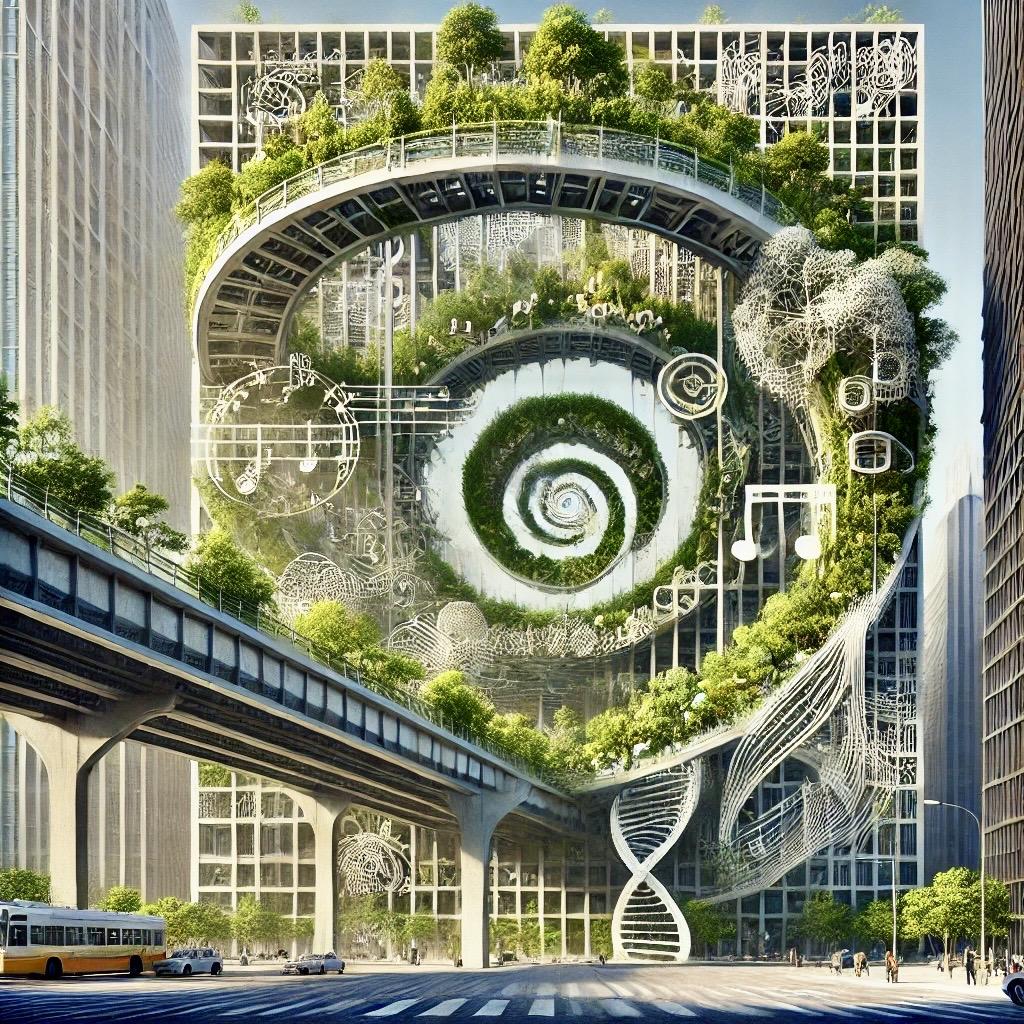
Douglas Hofstadter’s Pulitzer Prize-winning work, Gödel, Escher, Bach: An Eternal Golden Braid (GEB), offers a fascinating exploration of complex systems and self-referential structures. While GEB is often viewed through the lenses of mathematics, art, and music, its intricate ideas also provide a fresh perspective on Austin’s green transformation through the ReLeaf initiative.
At the heart of GEB is the exploration of how seemingly disparate fields intersect and reflect one another, as seen in Gödel’s mathematics, Escher’s art, and Bach’s music. Similarly, ReLeaf operates at the intersection of urban planning, environmental sustainability, and community engagement—seeking to turn Austin’s unused vertical spaces into vibrant, living ecosystems. Just as GEB interweaves different threads into a cohesive narrative, ReLeaf brings together diverse domains to create a more holistic and sustainable urban environment.
A key concept in GEB is recursion—a process that feeds into itself, forming a loop with no clear beginning or end, often leading to increasingly complex patterns. This idea resonates with ReLeaf’s mission to cultivate vertical gardens. As more people adopt these green spaces, the beauty and benefits they offer will inspire even more widespread implementation. This creates a recursive loop of adoption and transformation that has the potential to reshape Austin’s landscape on a fundamental level.
GEB also explores the idea of ‘strange loops,’ where moving upwards through different levels seems to paradoxically bring us back to the start. This echoes ReLeaf’s approach to enhancing urban spaces without erasing their unique character. As vertical gardens rise, we progress towards a greener city, yet we are simultaneously reconnecting with nature—returning to the roots of our existence.
Another key idea in GEB is the concept of self-reference and self-replication, which adds another layer of insight. Each vertical garden in the ReLeaf initiative is unique, yet they all share a common purpose: to enhance Austin’s green footprint. This mirrors GEB’s idea of ‘isomorphism,’ where different systems exhibit underlying similarities despite their individual characteristics.
Through the lens of Gödel, Escher, Bach, we gain a deeper appreciation of the ReLeaf initiative. It’s more than just creating green spaces; it’s about fostering a self-sustaining, recursive system that integrates environmental sustainability, community involvement, and urban life with nature. Together, these efforts lead us toward an infinitely greener future for Austin.